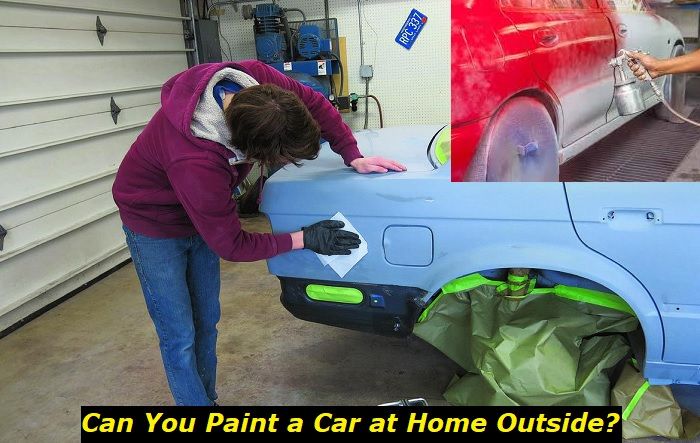The Ingenium engine family is a Jaguar Land Rover range of diesel and gas engines. The engine uses a modular architecture that makes it possible to build in three-, four-, and six-cylinder versions depending on what the market wants.
Key facts and my opinion about the engines
Production years: 2016-now
Average lifespan of AJ200: 150,000-170,000 miles
Fuel supply type: direct injection
Power range: 200-240 hp
Fuel efficiency: average
Engine block material: aluminum
Engine reliability score: medium
The most common problems: weak pistons, Ti-VCT phasers problems, intake manifold may crack, oil leaks are very common.
.jpg)
Common Issues with the Ingenium Engine
The following are the common issues to look out for
1) Oil Dilution
Oil dilution is one of the first irritations you may encounter with this powerhouse. This happens primarily because excess fuel enters the engine oil reservoir and dilutes the oil. When this happens, the Engine Oil Quality Sensor immediately issues a "service required" warning.
Why is this a turnoff? Because this warning comes way sooner than the service interval of 21,000 miles that JLR boasts of in their marketing materials. This has become so problematic that Jaguar Land Rover had to issue new marketing literature stating that service intervals may vary depending on your driving style.
The Cause?
The root cause of the oil dilution problem is the "ultra clean" Ingenium engine DPF. This diesel particulate filter should remove 100 percent of the soot that accumulates from the combustion process, which is somewhat too optimistic.
The DPF has a pressure sensor that detects when the DPF is full and consequently initiates a regeneration process. A regen process sends a blast of hot fuel into the DPF to burn off the soot.
Typically, a successful regen process requires you to drive long distances at high speed to maintain a DPF temperature of at least 800 degrees Celsius.
JLR did a fantastic job designing this DPF system but left it with one fatal flaw. For a regen process to complete successfully, it takes a specific drive cycle. If you interrupt the process by driving short distances, the excess fuel ends up in the engine oil reservoir, diluting the oil.
The "service required" warning alerts you that you are using poor-quality oil and that your engine may develop other problems. This could be an irritating problem since it is only a few miles since you last serviced your engine oil.
Do Not Ignore this Warning
Although it can prove expensive to change the oil more often than your owner's manual suggests, the sure thing is that it could be a lot costlier if you ignore this warning. The oil dilution was a severe issue, and Jaguar Land Rover knew about it. They issued a Service Compliant Notice in 2017, acknowledging that some models experienced the problem due to regen cycles happening more often than required.
The oil dilution problem is by far the most irritating issue about this engine. This has made most owners of Ingenium-powered JLR vehicles wish they had never replaced their older cars.
The following are some more known failures of the Ingenium engine.
2) Turbocharger Problems
Most Ingenium engines have notorious turbocharger problems. The first cause of this issue is fuel diluting the engine oil, rendering its lubricating properties useless. Besides lacking lubrication, the Ingenium engine turbochargers feature weak materials that cannot withstand off-road torture. When the turbocharger fails in your Ingenium engine, it may also cause the engine to fail.
3) Over-Demanding Maintenance
Every engine requires proper maintenance. If you fail to watch the health of your vehicle, several problems could occur, including a total engine failure. Neglecting regular oil checks and changes is a common cause of engine or turbocharger failure.
Although this is true for many engines, it is rather demanding for the Ingenium engine. This is because it can clog oil flow, denying engine components proper lubrication, even when oil is available.
Lack of proper lubrication can cause problems inside and outside your Ingenium engine. When the lubrication system clogs, one of the common failures you will experience will be the turbocharger.
4) Fuel Injector Problems
Another common problem with the Ingenium engine is faulty fuel injectors. These components send fuel to the cylinder for combustion. The common failure of the Ingenium injectors is over-fueling. This means the injectors send more fuel to the cylinder than required.
As the engine strains to compress and ignite this excess fuel, it produces excessive heat, leading to engine overheating. Additionally, the pistons in this engine have fragile materials. When they encounter extreme heat, they tend to change shape and size.
When the pistons reduce in size, they cause the cylinder to lose sealing and compression. This leads to the cylinder incurring lining damage. You will know your pistons and cylinder linings have problems when you hear your engine knocking. Higher mileage Ingenium engines experience cracked pistons.
5) Timing Failure
The Ingenium engine is also prone to timing failure. The materials used to build the timing system are weak and tend to break sooner than expected. The timing chain tends to stretch and snap, and the plastic guides break and fall off. You may find plastic particles from the guides entering the oil delivery system.
When your engine experiences a timing failure, it leads to other damages, such as broken rocker arms, valves, tappets, seals, and springs. However, the consequences are more severe for the Ingenium engine. The plastic particles shading from broken timing chain guides make their way into the oil delivery system, blocking the lubrication paths over time. This could cause the span bearing and the turbocharger to fail.
How to Avoid these Problems
Most of the time, we do not think about the health of the engines in our vehicles. Nevertheless, you cannot afford that mistake in a JLR Ingenium engine. You need to look after your engine to avoid common failures, especially if your engine is prone to problems.
The following are some hacks to help you keep your Ingenium engine from failing.
1) Avoiding Oil Dilution
The problem of oil dilution intensifies when you drive short distances, especially if it is an extremely cold region. When you start your engine, you must give it time to reach the optimum operating temperature.
If your truck initiates a regen process, driving a short distance and stopping will only make this problem chronic. To ensure your regen cycles do not leave unconsumed fuel in the system that ends up in the oil sump, ensure you drive a long distance at high speeds for the process to complete successfully.
You can also check the condition of your thermostat in the radiator regularly to ensure it does not cool the engine too much. When this happens, it deposits too much fuel on the cylinder walls. Although you know the cause of your problem, check the condition of this component too.
2) Avoiding Fuel Injector Problems
The problem with your Ingenium fuel injector is over-fueling. As noted earlier, these components fail in your engine because of poor-quality materials. What can you do about this issue? Mostly, nothing.
However, you can maintain your truck's proper maintenance schedule to keep the fuel injectors working correctly. You can also improve your engine's cooling system to keep the excessive heat from damaging the pistons and causing the cylinder to lose its compression.
3) Avoiding Timing Failure
Timing failure in your Ingenium engine occurs primarily because of the poor-quality timing belt. Although other parts can fail and affect your engine's timing, keeping the timing belt from failing can fix the problem.
Rarely does your timing belt snap without reason. However, with these tips, you can avoid timing failure by keeping your timing belt healthy.
- Inspect your vehicle regularly. Inspect the timing belt and every component that can affect its functionality. Regular inspections can help you catch signs of damage before it happens.
- Keep your timing belt replacement schedule.
- Ensure your engine lubrication system is working correctly all the time. Proper lubrication of your engine keeps pressure from going to other areas, such as your timing belt.
4) Avoiding Turbo Problems
To avoid turbocharger problems, keep a regular maintenance schedule. For the case of an engine like the JLR Ingenium unit, regular maintenance might be an understatement. You need to change your oil when the vehicle asks. Replace air and fuel filters as often as possible.
Also, feed your vehicle with high-quality fuel and the right engine oil. Your owner's manual has a prescribed type of oil. Make sure you use only that.
Another simple tip to keep your turbocharger from damage is to start your vehicle gently. When you start your engine, allow it to run at slow revs before pushing the throttle to the floor. This allows the oil to warm to the preferred temperature and create a proper lubrication film in your turbo system.
About the authors
The CarAraC research team is composed of seasoned auto mechanics and automotive industry professionals, including individuals with advanced degrees and certifications in their field. Our team members boast prestigious credentials, reflecting their extensive knowledge and skills. These qualifications include: IMI: Institute of the Motor Industry, ASE-Certified Master Automobile Technicians; Coventry University, Graduate of MA in Automotive Journalism; Politecnico di Torino, Italy, MS Automotive Engineering; Ss. Cyril and Methodius University in Skopje, Mechanical University in Skopje; TOC Automotive College; DHA Suffa University, Department of Mechanical Engineering






Add comment